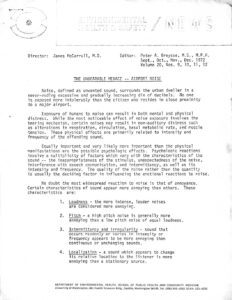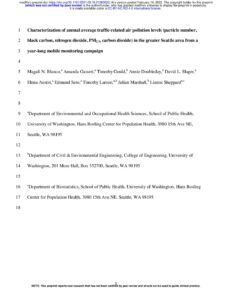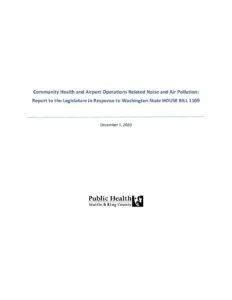
Compendium of WHO and other UN guidance on health and environment
Welcome to the global repository of interventions for creating healthier environments and improving health The Compendium is a comprehensive collection of available WHO and other United Nations (UN) guidance for improving health by creating healthier environments. It provides an overview and easy access of 500 actions, and a framework for thinking about health and environment
Characterization of annual average traffic-related air pollution levels (particle number,1 black carbon, nitrogen dioxide, PM2.5 , carbon dioxide) in the greater Seattle area from a2 year-long mobile monitoring campaign 2021.09.18.2 (pre-print)

Washington Tracking Network
Welcome to WTN, a Washington State Department of Health program focused on making public health data more accessible. WTN staff keep data in all tools up to date and develop additional data based on need and availability. Data are available for download and exploration using our four tools.
Adverse Cardiovascular Effects of Traffic Noise with a Focus on Nighttime Noise and the New WHO Noise Guidelines

Sounding the alarm: How noise hurts the heart
Loud road and air traffic has been linked to a greater risk of high blood pressure, heart attacks and strokes. Scientists are uncovering new details about how what you hear stresses the cardiovascular system. By Cypress Hansen In 2011, Germany’s Frankfurt Airport — the country’s busiest — unveiled its fourth runway. The addition sparked major
Beacon Hill Air & Noise Pollution Community Meeting Zoom Video
The Relationship between Airplane Emissions & Pre-Mature Births
SKCDOH Community Health and Airport Operations Related Pollution Report December 2020
Discussion:
 This study is part of what is broadly known as 'The Commerce Study'. The reference to HB 1109 (2019) refers to the fact that it ...
This study is part of what is broadly known as 'The Commerce Study'. The reference to HB 1109 (2019) refers to the fact that it ...
Fetal Health Negatively Impacted by Airplane Noise
The likelihood of having a low birth weight (LBW) baby is increased if the mother lives close to the airport, in the direction of the runway, and is exposed to noise levels over the 55 dB threshold, a new University of Colorado Denver study found. Results come from a study conducted by Laura Argys, PhD,